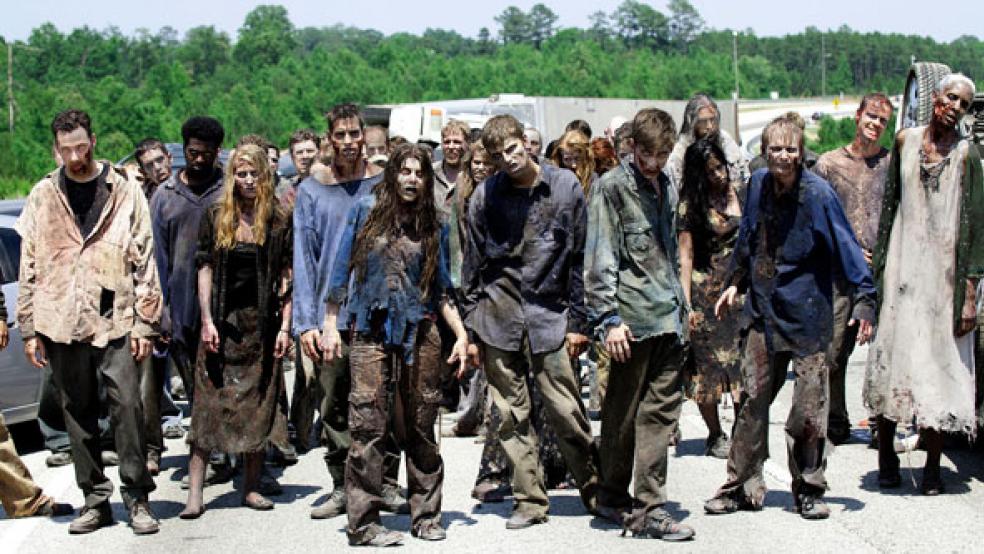With the release of Wednesday’s GDP data, the U.S. economy suddenly will get about 3 percent bigger.

It’s not that the economy experienced a sudden and unexpected growth spurt – the advance estimate of growth for the second quarter is expected to show fairly weak growth below 1 percent. Yet comprehensive changes to the national income and product accounts being rolled out Wednesday by the Bureau of Economic Analysis are expected to result in a gross domestic product that’s about $500 billion bigger than it was using previous methods of measurement. “That’s akin to tacking on another New Jersey, Ohio or Virginia to the nation’s broadest measure of output,” economists at Credit Suisse noted recently.
Does this mean the economy is stronger?
Not necessarily. The comprehensive revisions being made are essentially accounting changes that will increase the measured size of our economy but may not significantly change the speed at which it’s growing or shrinking. “The GDP will be larger in a statistical sense, but not any healthier,” Credit Suisse’s economists explained.
The updated methodology will be used to rewrite GDP history all the way back to when it was first calculated in 1929, but the most significant effects will be seen in the data for recent years. The new data may show that the recession was deeper and the recovery stronger than current numbers suggest, according to Bank of America Merrill Lynch economist Michelle Meyer. The revised data could also show a wealthier household sector with a higher savings rate, Meyer suggested in a research note this month.
Are these comprehensive revisions unusual?
These types of sweeping updates happen every four or five years, with the last time being in July 2009. Overall, this is the 14th benchmark revision of the national accounts data. The Bureau of Economic Analysis also makes annual revisions every July to incorporate newer and more complete data. But the revisions made every four or five years are more sweeping – they include some broader conceptual changes meant to reflect the evolving economy and to make U.S. data better conform to the international System of National Accounts.
They also include statistical updates, such as what the BEA describes as improved measures of banking services. The conceptual changes being made this time are the most significant since 1999, when software was reclassified as an investment rather than an expense.
What changes are being made to GDP this time?
The key changes have to do with intellectual property and the costs of innovation by businesses, though the revisions being incorporated for the first time Wednesday also include changes to the accounting for defined-benefit pension plans, among other things.
“The biggest change is treating R&D spending as a form of investment, just like buying equipment,” Brian Wesbury, chief economist at First Trust, wrote in a note to clients this week. “The theory is that it expands the stock of knowledge, which is then used to discover or develop new products. A similar change is being made for art that lasts more than a year, like movies, books or hit TV shows.” The BEA projected that the R&D change would add $314 billion, or 2.2 percent, to 2007 GDP, the latest year for which the government provided such estimates. The new treatment movies, TV shows, books, music and other original entertainment would boost 2007 GDP by $70 billion, or about 0.5 percent of GDP.
Why are these changes being made?
It’s an attempt to make the national income and product accounts better reflect our economy, including the growing importance of “intangible assets” and intellectual property. “It’s bringing GDP into the 21st century really,” says Jay Feldman, an economist at Credit Suisse. The changes reflect international best practices, with countries such as Australia and Canada already measuring such “intellectual capital” while European countries are in the process of adding it to their tabulations.
As an added benefit, the accounting change brings the government data more in line with how the market sees such intangible assets, J.P.Morgan economists Michael Feroli and Daniel Silver wrote in a research report last week: “Technology, pharmaceutical and media companies are regularly valued well in excess of their tangible assets, presumably a reflection of the fact their intangible assets have value that endures through time.”
Of course, the national income and output data still isn’t perfect. “One day, they’ll include homemaking, which counts when we hire someone, but not when we do it ourselves!” Wesbury and his colleagues noted.
So homemaking doesn’t count but ‘The Real Housewives’ shows do?
Well, not quite. A footnote in the BEA’s March 2013 preview of the revisions explains that not all TV programs will get the new accounting treatment. “Long-lived television programs include situation comedies and drama programs,” the BEA explained in a footnote. So the zombies of AMC’s “The Walking Dead” and the vampires of HBO’s “True Blood” will now be counted as investments and add to GDP. “Other types of television programs, including news programs, sporting events, game shows, soap operas, and reality programming have much shorter service lives and will not be capitalized," the BEA said. Sorry, Kim Kardashian, you’ll have to look for other ways to contribute to the economy.
Wait, so GDP just got 3 percent bigger. Is there politics at play here?
No, so ignore any moaning you might hear – at least insofar as it pertains specifically to these benchmark revisions. “The changes have been considered for many years,” the First Trust economists write, “and just as easily could have been made under a President Romney…except then it would be different people claiming conspiracy.”





